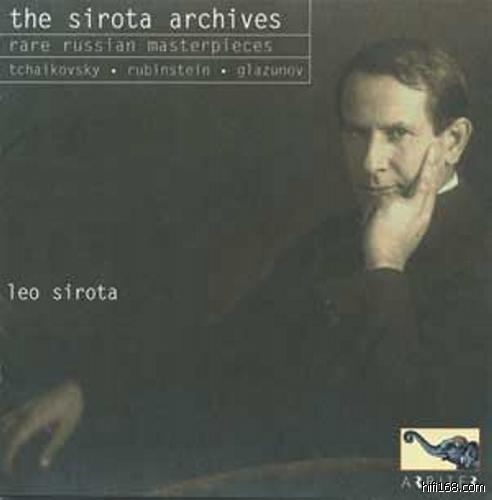Leo Sirota (May 4, 1885 - February 25, 1965) was a
Jewish pianist born in
Kamianets-Podilskyi, Podolskaya Guberniya,
Russian Empire, now
Ukraine.
Leo Sirota began studying piano at the age of five. By the age of nine he was already giving concerts and came to the attention of
Paderewski, who invited the boy to study with him. Sirota's parents, however, felt he was too young, and so he attended the conservatories in Kiev and, later,
Saint Petersburg. However, in 1904 he went to
Vienna to study with
Ferruccio Busoni.
He worked as rehearsal pianist with the conductor
Jascha Horenstein, whose sister he married. Sirota's Vienna debut concert must have been a memorable occasion: it comprised the
Mozart sonata for two pianos with Busoni playing the other piano, followed by the Busoni Piano Concerto, with Busoni conducting, and ended with the two piano version of the
Liszt Don Juan Fantasy.
Sirota settled in Japan in 1929, staying there for 15 years, teaching and giving recitals. He was a piano teacher of
Minoru Matsuya (1910–1995). While he was in Japan, he championed
Yamaha pianos, against the prevailing fashion in Japan for
Bechstein and
Steinway instruments.
After the Second World War he moved to America and taught in
St. Louis. A local radio station frequently asked him to broadcast, and much of his surviving recorded output comes from the paper-based tapes which the studio gave to him after each broadcast. His repertoire was vast, including the complete works of
Chopin which he broadcast. His playing is characterised by a luminous tone and unfussy, almost fastidious interpretations, underpinned by an astonishing technique - his rendition of
Rosenthal's arrangement of Chopin's
minute waltz with the right hand in thirds was said to have astounded
Arthur Rubinstein. Because his recorded legacy required specialised remastering, it is only recently that his stature as a pianist has been appreciated.
Sirota died in 1965.

